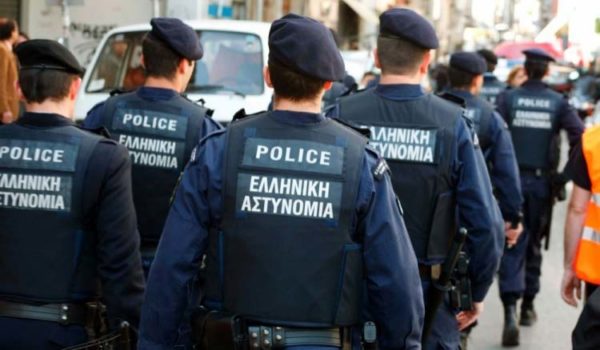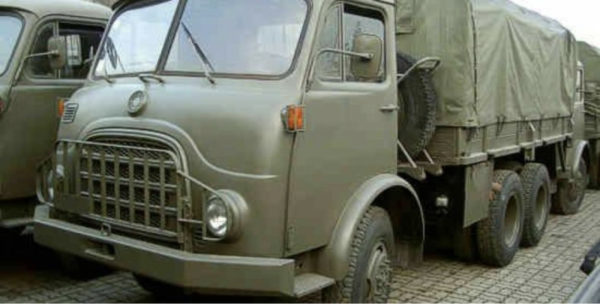The respondent is a 45-year-old man from Libya who was pushed back on 21 October 2021 from Greece to Turkey at the Evros/Meriç River border area in a large group of around 100 people. Due to the respondent’s phone being taken from him at his apprehension, he could not accurately identify the pushback location. The provided coordinates are thus a very rough estimation.
The respondent explained he was on his way back to Thessaloniki from Kavala after having spent time with his girlfriend there. He stated that he traveled by bus for half an hour when it stopped somewhere “in the end of Kavala city”, it was there that police officers reportedly came up to the bus and started apprehending people without documents. Four other people were apprehended together with the respondent, he expressed he did not know them. This took place around 4.30 PM.
The respondent described five male police officers and an unmarked white Volkswagen van. The officers were described as wearing balaclavas, some of them were wearing black and others were wearing blue uniforms. The respondent later identified the blue uniforms as belonging to the Greek police from pictures shown after the interview (see figure 1).

“They accused me of smuggling. They told me, “All of the people who are on the bus undocumented, you brought them”
When the officers asked the respondent for his documents, he showed them his Asylum Seeker’s Card (ASC) and his UHCR cash card. He stated that the officers broke his sunglasses and UNHCR cash card, and ripped his ASC. The officers reportedly accused him of smuggling the undocumented people that were also on the bus. The respondent was put on the ground and his hands were cuffed on his back with plastic zip ties, he was then reportedly beaten with batons and tasered with a stun baton on his chest and stomach. He also mentioned that the officers threw fruit, that he had bought earlier, in his face.
The respondent recalled seeing and hearing a woman yelling at them from the balcony of a building located next to them. According to the respondent, this was why the officers put him inside the van, “so nobody could see them”. The other four persons that were apprehended were also put inside the van with the respondent. They reportedly arrived at a location close to the Greek-Turkish border after what felt like a 1,5-hour drive.
Following the respondent’s testimony, the likelihood of the ride’s duration from the west of Kavala to the Evros/Meriç River border area being 1,5 hours is very low, as this typically would take a minimum of 2 to 2,5 hours. Under normal circumstances providing an accurate time estimation is already difficult, and due to this being a very traumatic experience for the respondent, his memory and ability to accurately estimate the duration of the ride could have been distorted.
According to the respondent, the driver of the van was driving very erratically. During the drive, the respondent did not experience any more violence, nor were more people taken on the way. The respondent explained they arrived at a “big building” next to the border. He saw no signs that indicated it being a police station or an army station.
“There were around 100 inside that building. I saw around like 7 women, all of those women had children, like also babies.”
Inside the building, the respondent reported seeing many people, including men, women, and children. According to the respondent, among them were people from Algeria, Morocco, Syria, and Iraq. There were reportedly around ten persons wearing what was described as an army/camouflage uniform. Some of them were wearing balaclavas, others were wearing regular face masks. Some of them were speaking in Greek, and others in English.
The respondent reported there to also be around six other persons present. He did not know if they were Greek police officers but reported them to be wearing “really weird uniforms”: balaclavas, black jackets, jeans, and boots. At the border area, there are often unidentified individuals described to be wearing black uniforms and balaclavas (see other testimonies here, here, and here).
When the respondent arrived at the building, he explained that he was searched, and that they took 170 Euros and his phone from him. He tried to explain to the officers that he had asylum in Greece, he tried communicating in English and German, but the officers did not respond and reportedly beat him. The condition of the toilet inside the building was so dirty, according to the respondent, that people preferred to relieve themselves at the door instead of going to the toilet.
“I was trying to speak to them in English, German, they didn’t respond. They just beat me.”
After having stayed at this border location for approximately four hours, the respondent explained that two trucks arrived around 10-11 PM. The trucks seemed to be green and had a plastic cover similar to the one depicted in Figure 2.

According to the respondent, before they were brought to the trucks, they were beaten by the aforementioned six persons wearing balaclavas and black clothing. The respondent explained that they used their batons and if someone fell down, they would kick them. After, the group was brought to the two trucks and were split into two groups before being ‘loaded’ into the trucks. The respondent mentioned the trucks being overcrowded with the amount of people. In each truck there were, what was described as, two army officers present; one driver and one passenger, there were no officers present with them in the back.
After an estimated 20 to 30-minute drive, both trucks arrived at the Evros/Meriç River. Here, they were reportedly all put on their knees and searched again, even if most of them were only wearing underwear. The respondent explained that if someone did not immediately give their money to the officers and it was discovered that they were hiding it, the officers would beat them. The respondent reported that he saw some people digging a small hole in the ground where they hid their money.
“Some people hide their money in their boxers, so they tell them ‘You should give us the money before we search you, and if we find that you have money, we will beat you up’.”
At the river, there were two males described as officers already present before the trucks arrived. Reportedly, they were speaking Arabic with a Syrian accent, as well as Kurdish. They were described by the respondent as wearing balaclavas, army uniforms, and boots. Both were carrying guns. The respondent explained that these two officers brought them in groups of ten to the other side of the river with the dinghy.
When the respondent was on the dinghy, one of the officers used the paddle to hit him on his head and told him in Arabic to ‘Shut up, you dirty’, reportedly without any reason. He was the only one that experienced violence on the dinghy. It took less than 10 minutes to get to the Turkish side of the river, according to the respondent.
On the Turkish side, the respondent explained that when he got to the first village, he took a taxi with some friends to go back to Istanbul. When he arrived there, he expressed his situation had gotten worse because “he was beaten up and he is a bit old”. He got help from some Syrian people who helped him to get to a hospital where he stayed for one night.
